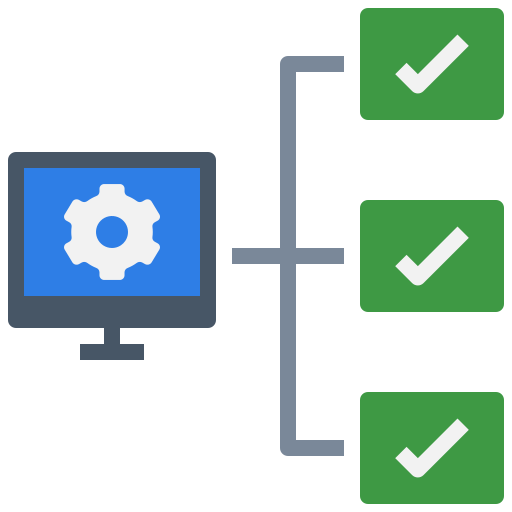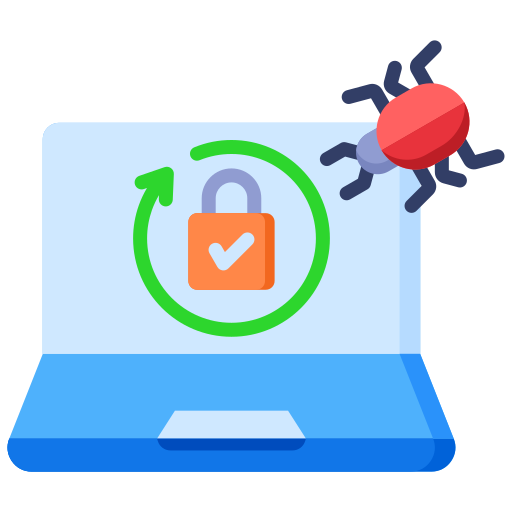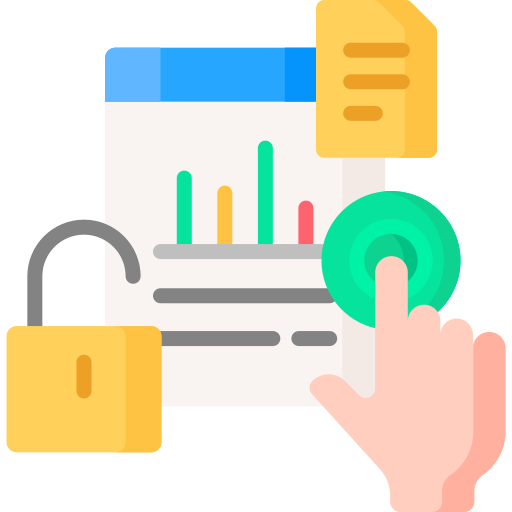Testing
At Ething, we ensure the quality and reliability of your software products through our comprehensive manual and automation testing services. Our skilled testing team meticulously evaluates your software applications, identifying and resolving any defects or inconsistencies to deliver flawless user experiences. With manual testing, we conduct rigorous functional testing, regression testing, and user acceptance testing to validate the software’s performance against defined requirements. Additionally, our expertise in automation testing allows us to expedite testing processes and enhance test coverage using cutting-edge tools and frameworks. By combining manual and automation testing strategies, we guarantee the robustness and efficiency of your software solutions, empowering your business to thrive in today’s competitive market. Partner with Ething and elevate the quality of your software products with our meticulous testing services.

Test Planning and Strategy
Developing comprehensive test plans and strategies to ensure thorough coverage of functional and non-functional requirements.
Identifying test scenarios, test cases, and test data necessary to validate the software’s behavior and performance.

Manual Testing
Performing manual testing activities such as exploratory testing, regression testing, and ad-hoc testing to uncover defects and inconsistencies in the software.
Executing test cases manually to verify the functionality, usability, and compatibility of the application across different platforms and environments.

Automation Testing
Designing and implementing automated test scripts using industry-standard automation frameworks such as Selenium, Appium, and TestComplete.
Leveraging scripting languages like Python, Java, and JavaScript to develop robust and maintainable test automation solutions.

Continuous Integration and Continuous Testing (CI/CT)
Integrating automated tests into continuous integration pipelines to enable early detection of defects and ensure code quality throughout the development lifecycle.
Automating the execution of test suites as part of CI/CD workflows to validate software changes and prevent regressions.

Performance Testing
Conducting performance testing to evaluate the scalability, responsiveness, and stability of the software under various load conditions.
Using tools like JMeter, LoadRunner, and Gatling to simulate realistic user traffic and measure key performance indicators such as response time, throughput, and resource utilization.

Security Testing
Performing security testing activities such as vulnerability scanning, penetration testing, and security code reviews to identify potential security risks and vulnerabilities in the software.
Utilizing specialized security testing tools and techniques to assess the resilience of the application against common security threats and attacks.

Accessibility Testing
Ensuring that the software is accessible to users with disabilities by conducting accessibility testing according to WCAG (Web Content Accessibility Guidelines) standards.
Using assistive technologies and automated accessibility testing tools to evaluate the application’s compliance with accessibility requirements and guidelines.

Cross-Browser and Cross-Device Testing
Validating the compatibility and responsiveness of the software across different web browsers, mobile devices, and operating systems.
Executing test cases on a variety of platforms and devices using cloud-based testing platforms and emulators to ensure consistent user experiences.

Test Reporting and Documentation
Generating comprehensive test reports and documentation to communicate test results, defects, and quality metrics to stakeholders.
Tracking and managing defects through dedicated defect tracking systems to facilitate timely resolution and closure.

Test Environment Management
Setting up and maintaining test environments that closely mirror production environments to ensure accurate and reliable testing results.
Managing test data and test infrastructure to support efficient and effective testing activities throughout the software development lifecycle.
Framework / Technologies |
Manual Testing
Ensures software functions correctly based on requirements, including functional, regression, user acceptance, and exploratory testing.
Automation Testing
Utilizes tools like Selenium, Appium, JUnit/TestNG, and Pytest to automate testing processes, improving efficiency and reliability.
Test Management
Tools like JIRA, TestRail, and Zephyr help organize and track testing efforts, ensuring comprehensive coverage.
CI/CD Integration
Platforms such as Jenkins and GitLab CI/CD enable seamless integration of testing into development pipelines, facilitating rapid and reliable software delivery.


